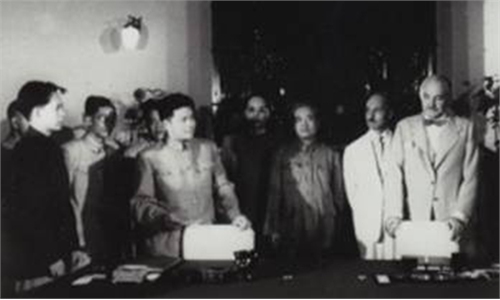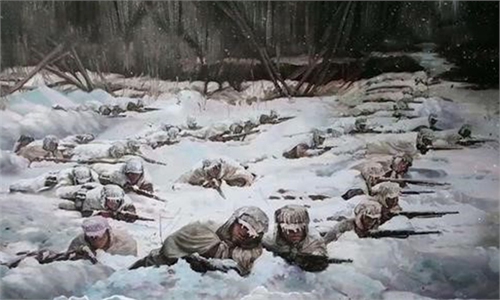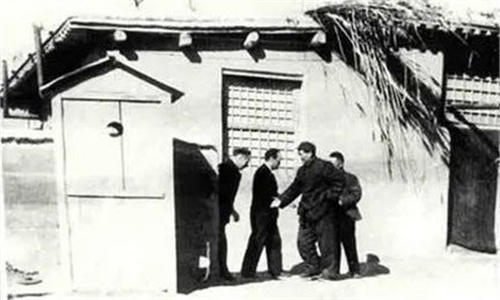“The Film is Excellent and You Should Make More Like This”— Cultural Diplomacy on the Sidelines of the Geneva Conference
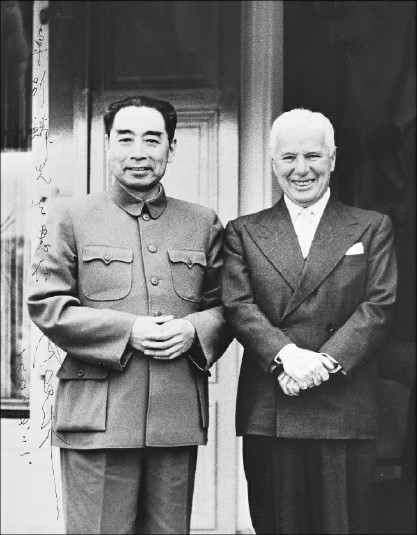
Premier Zhou Enlai and Charlie Chaplin
On July 18, 1954, on the sidelines of the Geneva Conference, Premier Zhou Enlai met with Charlie Chaplin, a master of cinema.
Chaplin was no stranger to China. In the early 1930s he had a short stay in Shanghai during his trip to the East. Yet it was the first time he ever met a CPC member. Zhou Enlai told Chaplin that he came to know him on the screen 40 years ago. Despite the fact that Chaplin's films were banned when they met, Zhou Enlai was unbiased, sincere and amiable, which warmed Chaplin's heart. The two felt like friends already in their first meeting. Chaplin asked about the Geneva Conference. The Conference, held from April to July 1954, was aimed at resolving issues of the Korean War and the First Indochina War. It was an important international conference after WWⅡ and the first time that New China and the United States sat together after the Korean War, thus attracting wide attention from around the world. The Conference lasted for nearly three months amid heated debates. With the resolve and fortitude of a statesman and diplomat of the New China, Zhou Enlai facilitated a peaceful settlement on Indochina at the Conference despite the difficulties. When Zhou Enlai told Chaplin calmly that things were resolved peacefully, Chaplin, a peace advocate using his movies to fight Fascism, smiled and commended him as a key figure that positively contributed to the Conference.
At Chaplin's request, Zhou recounted China's arduous yet glorious revolution. When hearing about the Long March, Chaplin, while astonished by this incredible endeavor, didn't lose his sense of humor as he said that Zhou Enlai would never have to walk that far again. Chaplin was deeply impressed by how the CPC Central Committee entered Beijing with flying colors and the grand celebration by hundreds of thousands of people at the founding ceremony of the PRC. Recalling the misery of the Chinese people under foreign aggression that he saw in Shanghai in 1936, Chaplin was awed by the tremendous change in China and expressed the hope to visit China again. Zhou Enlai immediately extended an invitation and Chaplin accepted it with alacrity.
Zhou Enlai then invited Chaplin to a screening of a Chinese film. The film was called The Butterfly Lovers, a Yue Opera film adaptation of a popular Chinese folktale. Chaplin was so touched by the film that he said to Chinese reporters that the film was excellent and China should make more like this. He added that the thousands of years of civilization and fine cultural traditions of the Chinese nations should be further explored. Chaplin then met with Fan Ruijuan, the actress who played the hero in the film. He told her how much he enjoyed her performance and offered constructive suggestions. In the end, he said with emotion that he really appreciated the Chinese people's commitment to carrying forward their cultural heritage and fine traditions, even it was not long after the nation succeeded in the revolution.
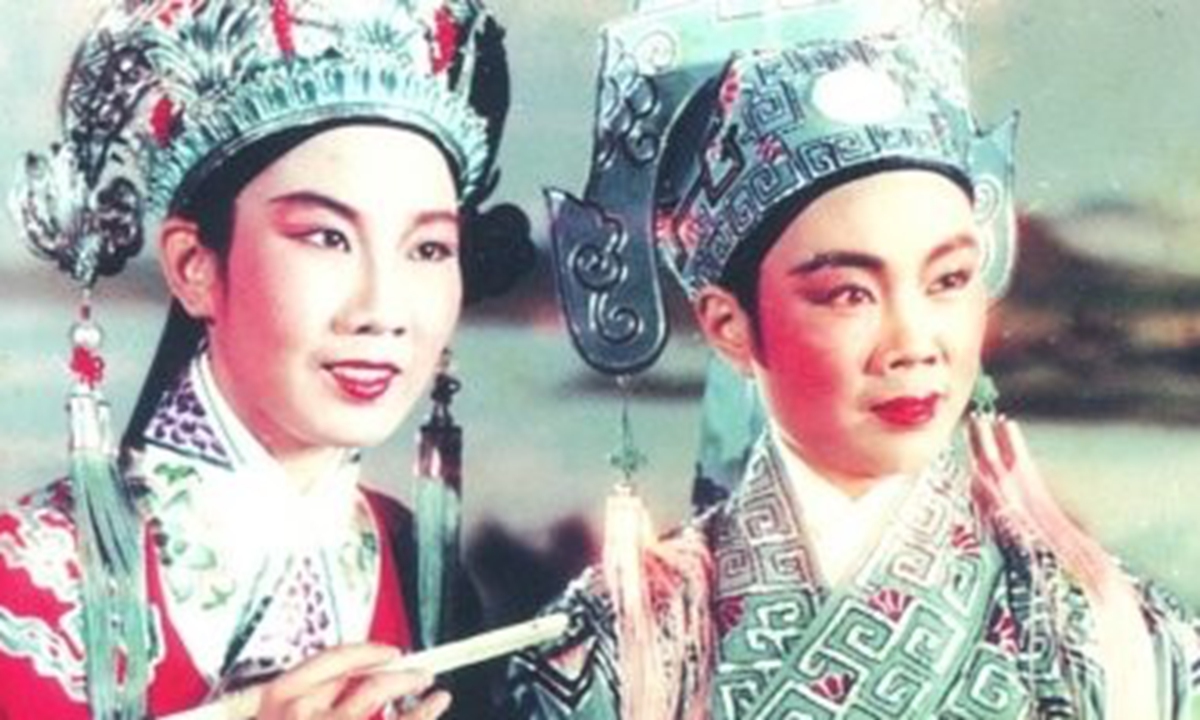
A Still of the Chinese Color Film The Butterfly Lovers
The meeting with Zhou Enlai deeply impressed Chaplin and sowed a seed of friendship with China in his heart. When a Chinese art troupe and a puppet art troupe performed in Paris, Chaplin brought his family to the performances and spoke highly of them.
The Geneva Conference was the first international conference that New China participated with the status and in the capacity of the Big Five. It offered the country the first opportunity to break the international blockade and engage with Western countries. The Conference showed the world China's commitment to world peace and regional stability, its refreshing diplomatic approach, its foreign policy of peace, and its role in resolving international issues. The Conference also showed that even in the Cold War, international disputes, no matter how complicated, can be resolved in a peaceful manner. The meeting between Zhou Enlai and Chaplin not only brought closer this master of cinema and traditional Chinese opera, but also epitomized China's peaceful vision of integrating into the world through cultural diplomacy.
